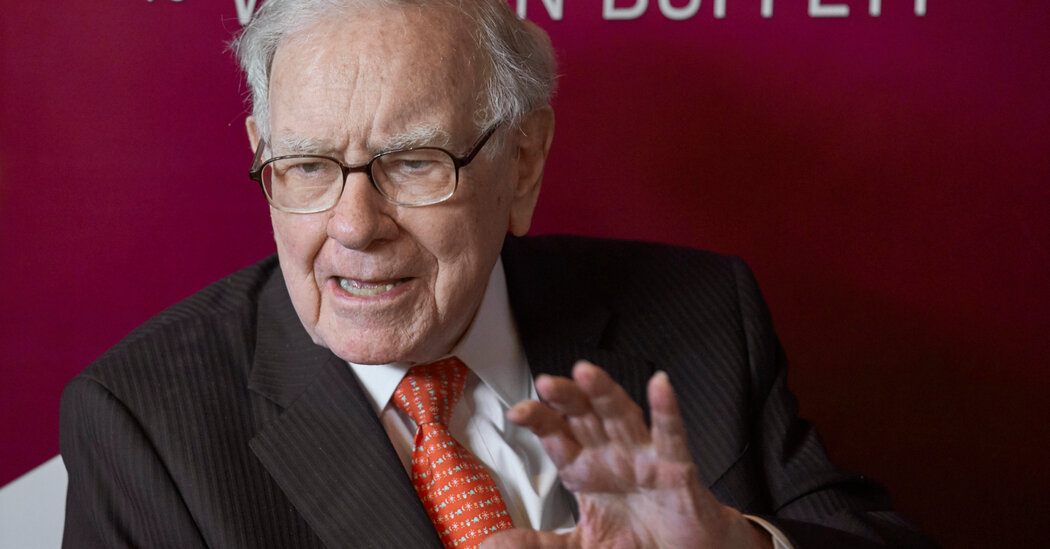Berkshire Hathaway, the conglomerate run by Warren E. Buffett, posted a $2.6 billion loss in the third quarter as paper losses on its huge investment portfolio and increased costs related to weather disasters, inflation and more weighed on the company.
The earnings report shows once again how Berkshire — whose businesses include insurance, railroads, energy production, and interests in Apple, Coca-Cola, Fruit of the Loom underwear and more — is a microcosm of the U.S. economy and the various forces driving the United States. year.
The biggest drag on Berkshire’s revenues for the three months ended Sept. 30 was a $13.5 billion write-down in the value of its investments. Mr. Buffett, one of the world’s most followed stock investors, has long warned that fluctuations in the paper value of his company’s stock could overestimate Berkshire’s financial health.
Judging by Mr. Buffett’s preferred operating profit, Berkshire reported $7.76 billion in profit for the quarter, up nearly 20 percent from the same time a year ago.
But Berkshire also disclosed headwinds for his company on a number of fronts. The company’s massive insurance arm reported $2.7 billion in insurance losses during the quarter related to Hurricane Ian, compared with $1.7 billion in losses from Hurricane Ida and flooding across Europe a year ago.
The Geico brand reported an increase in underwriting losses, citing inflation-driven increases in property and property claims.
Other parts of the company’s business empire also faced inflationary concerns. The Burlington Northern Santa Fe Railroad, one of the largest railroad operators in the United States, reported significantly higher fuel costs and higher compensation for workers because of wage inflation and tentative union agreements.
The Berkshire Hathaway Energy division, a major power producer around the world, reported $1.6 billion in profit for the quarter, up slightly from the year before, although it also reported higher sales and expenses.
And the economic slowdown in the United States weighed on some of Berkshire’s divisions. Burlington Northern cited lower freight volumes as one of the challenges. Slowing sales contributed to a 75 percent decline in apparel and footwear sales for the quarter, with the company forecasting another year-over-year sales decline over the holiday season.
Even battery maker Duracell reported a decline in quarterly results, citing lower sales and cost inflation.
Despite the volatility in the markets, Mr. Buffett remained an active dealmaker during the quarter, expanding his holdings in oil and gas producer Occidental Petroleum, among other stock betting. Some investors expect Mr. Buffett to eventually try to buy all of Occidental, given his enthusiasm for the company’s performance and management.
Berkshire also continued to repurchase its own shares, buying back just over $1 billion in the quarter.

